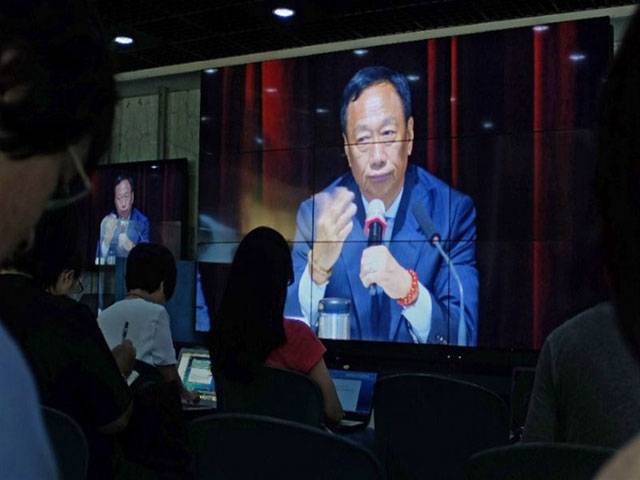TAIPEI - The head of Taiwan's tech giant Foxconn confirmed Sunday he is considering a $7 billion investment to make flat panels in the United States in a joint project with Japan's SoftBank.
US President Donald Trump announced before taking office a $50 billion deal by the two firms which he said would bring 50,000 jobs. Trump was speaking in the lobby of Trump Tower in New York alongside SoftBank's chief executive Masayoshi Son.
Foxconn, a major supplier to Apple, had earlier said it was in "preliminary discussions" with US officials about a potential investment but gave no details.
"I have discussed with my major clients about going to (the US) and they are also willing to invest, including Apple," Terry Gou told reporters in Taipei after the company's year-end party.
The firm is the world's largest contract electronics maker and is best-known for assembling products for international brands such as Apple and Sony.
"Pennsylvania is active and I urge other states to act more quickly or I will sign the contract with Pennsylvania," he said, adding that the investment could create 30,000-50,000 jobs.
Foxconn is still waiting to see the tax policies of the new US government and what incentives state authorities can offer, such as cheap land and electricity, Gou added.
Foxconn, also known as Hon Hai, employs around a million workers at its factories across China and has operations in more than 10 countries.
Last year it took over the struggling Japanese electronics maker Sharp after acquiring a 66 percent stake for $3.7 billion in a move Gou described as "really worth it."
In the US, it has a plant in Virginia for packaging and engineering which employes over 400 people. It has also announced a $40 million investment in a facility in Pennsylvania to build precision tools and develop a robotics programme.
Gou said Foxconn aims to increase investment in China this year to try to boost Sharp's market share in the country, but denied reports that he had been pressured by China over his planned US investment.
Almost immediately after he won the November election, Trump angered China by accepting a congratulatory call from Taiwan's President Tsai Ing-wen. He further upset Beijing when he threatened to get tough with what he sees as unfair Chinese trade practice and suggested that the "One China" policy is negotiable.






